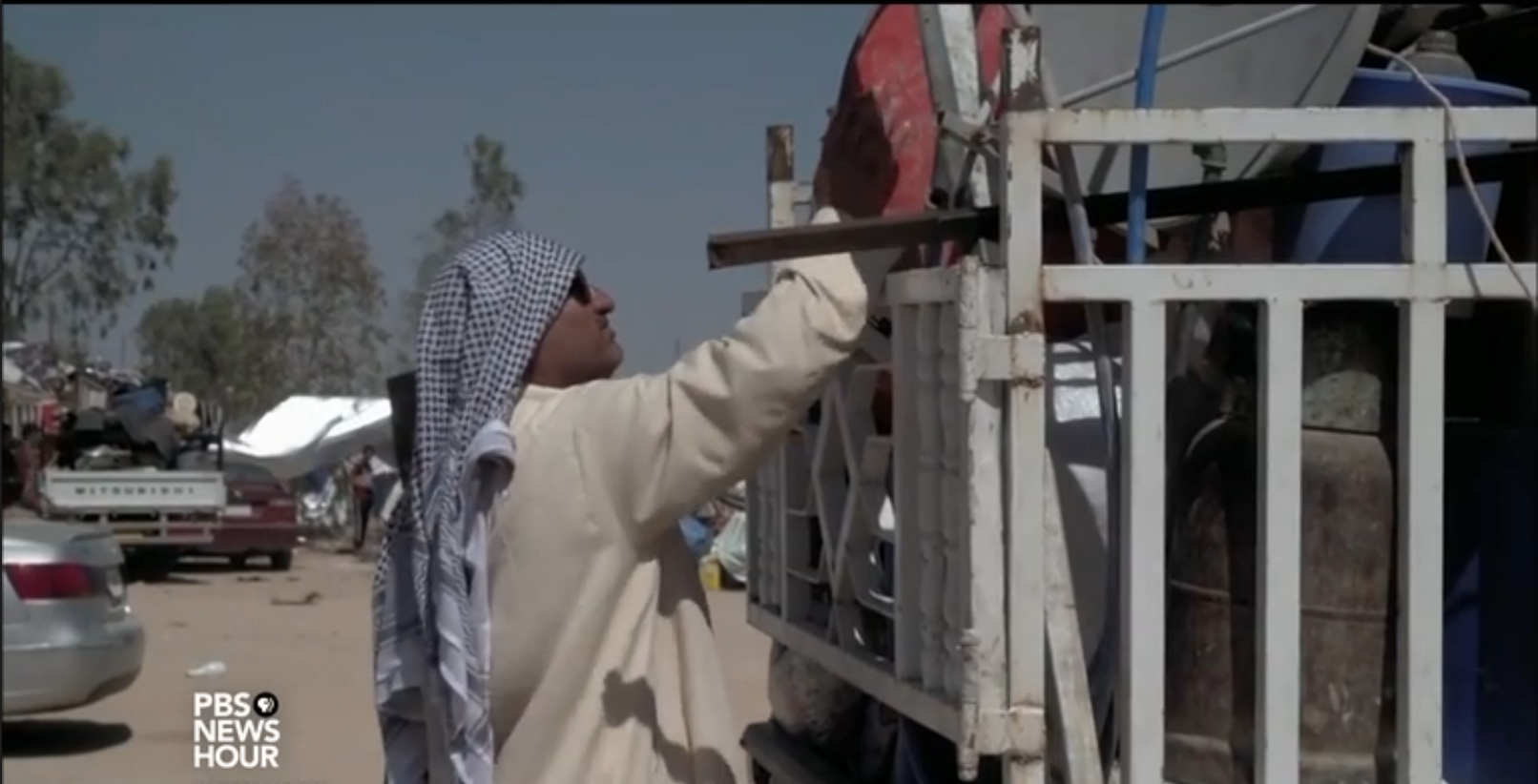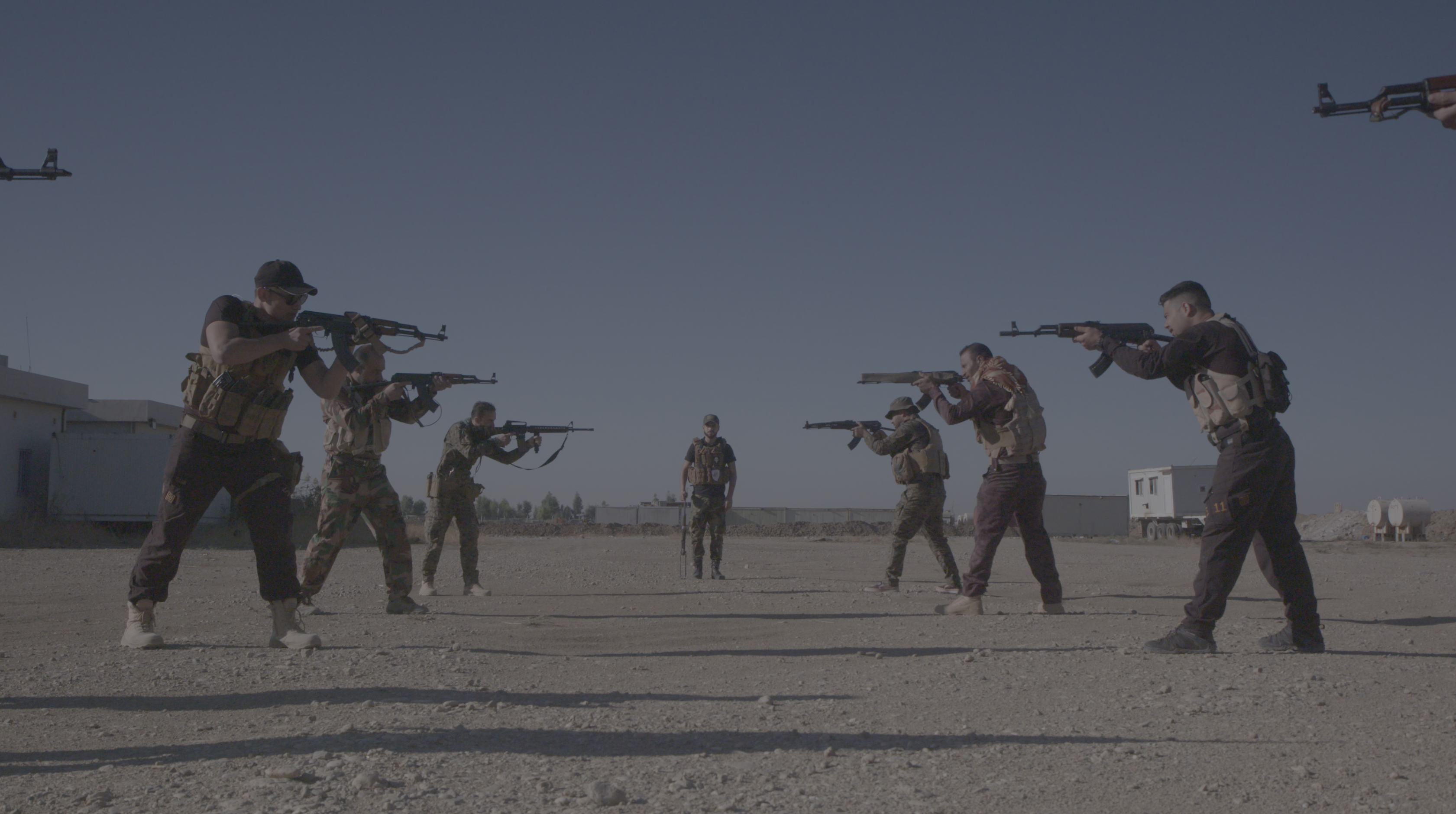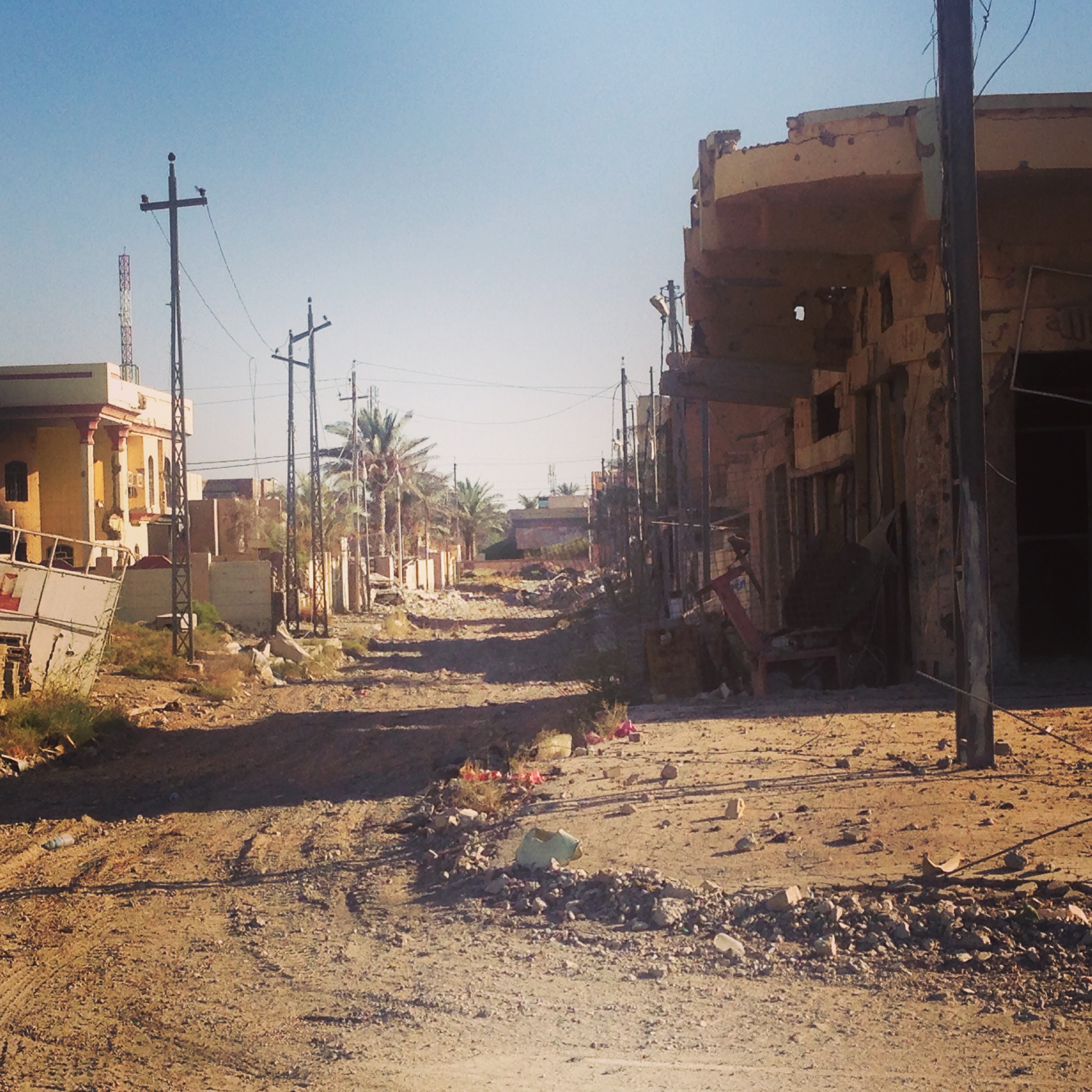
JUDY WOODRUFF: Now to the final report in our three-part series this week, The Fight for Iraq.
The coming battle to reclaim the city of Mosul from ISIS will be the capstone in the campaign to drive the extremists from Iraq. But the hard work after the guns go silent of repairing both the city and relations with the people there is as important.
Tonight, with the support again of the Pulitzer Center on Crisis Reporting, special correspondent Jane Ferguson and producer Jon Gerberg report from one city reclaimed from ISIS where the fighting was only half the battle.
JANE FERGUSON: Now an empty concrete ghost town, Fallujah was once a populous city, just an hour's drive west from Baghdad.
ISIS quickly took this city two years ago, when they swept into Iraq from Syria and seized land across the country. They ruled the city and its people until the Iraqi army pushed them out in June.
In order to take back Fallujah City, the Iraqi military had to completely empty the city, and the fighting that happened afterwards destroyed everything that the eye can see. Now the atmosphere in this still largely empty city is incredibly eerie.
Khalil Abass is looking forward to rebuilding. He is getting his family ready to go back to their village on the outskirts of Fallujah. All their belongings have once again been packed, including even chickens for food. He is optimistic.
KHALIL ABASS, Fallujah Resident (through translator): I'm happy I'm going back to my home with my family to live a stable, normal life. If God wills it, we will get our old lives back.
JANE FERGUSON: Not everyone can do that. Only a small handful of families have been able to return to Fallujah City so far.
Thousands of others are crammed into camps like this one, not yet allowed to return. Many have not been cleared by the security forces. These people are trying to get home. They ran from the intense fighting when the Iraqi army recaptured Fallujah City from ISIS.
And now they want to return. At a sorting center outside the city, they hope to be given government permissions to go home. But first they will have to persuade the men inside here they are not ISIS members in disguise.
BRIG. GEN. HAMZA AL MOHAMMED, Iraqi Army (through translator): All of the government security branches are here, national security, intelligence, anti-terrorism, military intelligence and police intelligence.
JANE FERGUSON: Each of those groups has a list of suspected ISIS members, and everyone who applies to return to Fallujah has to be checked they are not wanted. When names are read out, the men here answer black or white. Anyone on the black list is arrested.
BRIG. GEN. HAMZA AL MOHAMMED (through translator): This is a family that wants to return to Fallujah. This family is under the name of someone, right? His name is Ahmad. White? We screened the name of the head of the family. The rest are women and children.
JANE FERGUSON: The word in Arabic for white, abyad, means they are free to go. Only then are they given the permit to return home. They are also given a free SIM card with some credit, and then they head up the road to Fallujah.
For those who do return, this is what greets them. The streets are now silent. By the time the gunfire finally finished in Fallujah City, most of those living here had fled.
Every highway, avenue and neighborhood is now smashed and scarred by war. There are few signs of life. According to the local government, only about 5 percent of the pre-ISIS population has so far returned to the city. Many houses are still booby-trapped, says the government. It will take a huge cleanup effort to make every street safe again.
Some families are missing relatives, picked up by the army as they fled the city. Security forces detained Fallujans as they evacuated, checking for ISIS fighters. Those they let go were sent to camps like this.
Hamad Khalaf was detained with his four grown sons, but only he and two of them were released. That was four months ago, and he has heard nothing of his other two sons.
HAMAD KHALAF, Fallujah Resident (through translator): They kept them. Someone came and said, "I saw this one with ISIS." My son is normal. He is not with ISIS.
JANE FERGUSON: In many cases, he says, this came down to personal grudges. The process was often arbitrary, as neighbor turned on neighbor.
HAMAD KHALAF (through translator): It happened to thousands of people, not just my sons. They are innocent. I know they are innocent. They are being held without explanation. If a person hates another, he will tell the police this person is with ISIS.
JANE FERGUSON: Hamad's wife, Fatima, is distraught at not knowing where they are.
FATIMA KHALAF, Fallujah Resident (through translator): I feel that they might not release them to me or they might keep them for another month or two. I might not see them. I might die and never see them again.
JANE FERGUSON: Americans fought two battles for Fallujah in 2004, and were never able to free the city from the grip of the Sunni extremists, al-Qaida in Iraq. Sunnis here rejected the toppling of Saddam Hussein and the rise of a Shia government in Baghdad, and many welcomed al-Qaida in Iraq as their defenders.
The legacy of that bloodshed means some people in this camp still hold bitter memories of American involvement in their country.
MAJID SALEH, Refugee From Fallujah (through translator): I lost 31 family members to the Americans. Of them, my sister's son was four months old. My sister's son, his sister and their father, they were all killed. What more can I say?
JANE FERGUSON: After the U.S. military withdrawal from Iraq, policies of the Shia-led Baghdad government became more sectarian. Sunni people in areas like Fallujah were left feeling disenfranchised. Many initially welcomed ISIS, a new, more ambitious version of al-Qaida in Iraq.
Sohaib Al-Rawi, governor of Fallujah's Anbar Province, and a Sunni himself, saw that sectarian strife firsthand.
SOHAIB AL-RAWI, Anbar Governor (through translator): The Sunni community faced injustice. Many leaders were killed or driven from the country. So, the community feels oppressed. I do not excuse the Sunni extremists, but this is what inflamed the political and security situation in the Sunni provinces.
JANE FERGUSON: Today, the Iraqi government's attempts to restore Fallujah include mass security and intelligence screening of all of its residents. But that won't give Fallujans back the lives they once had, which now only live in memory.
MAJID SALEH (through translator): What else can we say about Fallujah? We used to have livestock and tasty food. Now we eat the food of livestock. Fallujah is gone. It's lost. Fallujah is lost.
JANE FERGUSON: Fallujah has been destroyed by war before, and rebuilt. The repeated explosions of violence here are unlikely to end until its people feel like a real part of today's Iraq.
For the PBS NewsHour, I'm Jane Ferguson in Fallujah, Iraq.

Education Resource
Meet the Journalists: Reza Sayah and Gelareh Kiazand
For PBS NewsHour, Reza Sayah and Gelareh Kiazand investigate U.S. claims of Iran's interference in...






